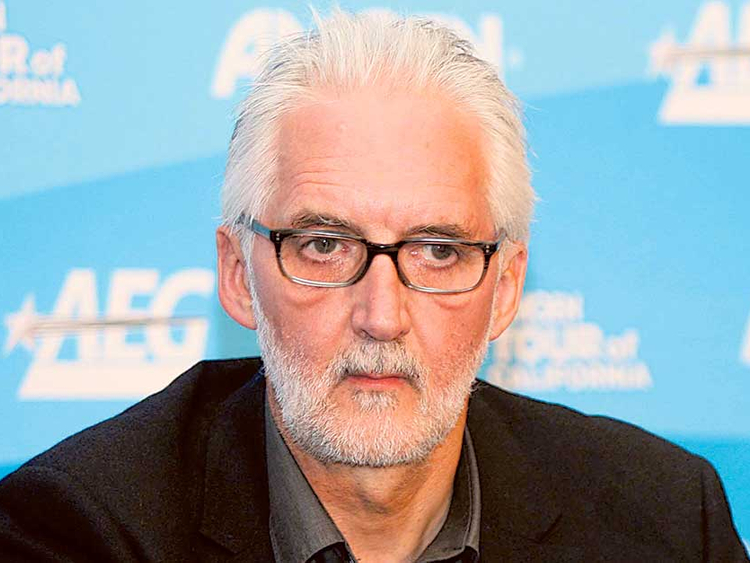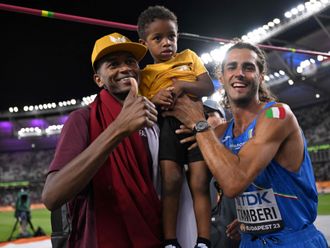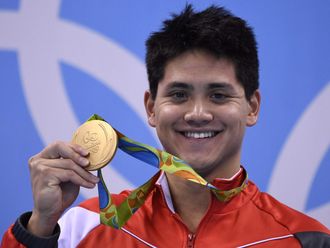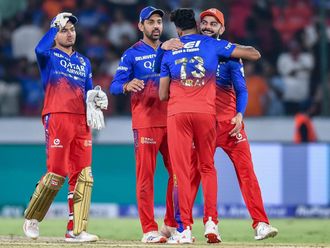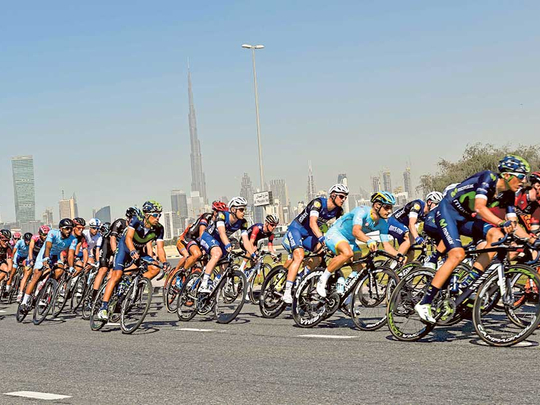
Dubai: By the end of Pat McQuaid’s presidency at world governing body for cycling, the UCI, there was a thick malaise hanging over the governance of the sport for all concerned. Trust was low, and the incumbent president had to run on the dubious, and perhaps illegal, backing of two countries - not his own - in order to even stand for a vote.
At 2013 UCI World Road Championships in Florence, Italy, the UCI Congress could hardly decide if a vote could even take place. It crystalised the dysfunction and favouritism many had long accused the UCI of, notably after the Lance Armstrong scandal that shook the world of sport.
Then walked in Brian Cookson, and the sport of cycling – whether we like it or not – has never been the same again.
Cycling is unique among sports, for the mere fact that it is accessible to all as a leisure activity and also as a means of transport. Over two billion people use bikes throughout the world, from all sorts of backgrounds, ages and physical ability.
On September 27, Cookson will complete three years since his election as UCI President. Among the changes mooted and pushed through by the cycling chief is an openness and transparency while promising sweeping changes in the anti-doping programme of the sport. In a candid chat with Gulf News, Cookson shares his thoughts on all these aspects and more:
GULF NEWS: There is a spurt in interest from the cycling world in the Gulf region. What do you think are the reasons for the changes that are happening at the moment?
BRIAN COOKSON: This is the first time-ever that the 89th World Road Cycling Championships (from October 9-16) are being held in the Gulf area [Qatar], and this is a major achievement for the region and recognition of the fact that the area is becoming more and more important in the eyes of the cycling world. This is in terms of events and sponsorships as also in terms of participation as we have some strong national federations who are working very hard to develop cycling in their respective countries, and the region on a whole. We are very keen to support them in doing that. We are really looking forward to bringing our World Championships to be in the area as this can only be of help to raising the profile of the sport.
Q. Cycling is gaining widespread popularity across the region with two tours in the UAE, one each in Qatar, Bahrain and Oman. Additionally, Bahrain is mulling a proper professional cycling team as early as next season. How significant are things like these?
A. All of these things are an indication of the significance and importance of the growth in cycling in the region. Cycling is a sport that is attractive and colourful. So it is a healthy past-time for the residents of the Gulf, and this is also good for the environment as cycling helps reduce traffic and congestion, and so on. We are absolutely delighted to see this increase in thrust in the region and we want to try to support it and see more of it developing. And if that means more events in the Gulf, it is good. If it means teams being sponsored by Gulf businesses or Gulf interest countries and nations, then that’s good as well. But perhaps, what is even more important is that we need to see more people riding their bikes more often, for health and for environment and for transport and for sport, across the Gulf.
Q. Your investiture into the UCI presidency was based on openness, transparency, marketing the sport better and cycling for women. How do you think you have fared in all these areas?
A. I think it takes a long time to change the world. Just to use an old analogy, you cannot change the direction of an oil tanker immediately - and that is applicable to a sport like cycling where we have different interests. We have teams, we have national federations, we have organisers, we have sponsors and we have media. So all of these things means that any change takes a longer time to implement than might be desirable. But we need to be persistent. We need to be consistent. And we need to have a good strategy. And I think we’ve got all of these things going for us, and we are moving in the right direction. Perhaps, some of those things are not moving as fast as I would like and as fast as other people would like, but I do believe that we are going in the right direction now.
Q. Would you harbour any special ambitions for the Gulf in particular?
A. The region is progressing very strongly and I would like to see it continue its progression. I don’t think it needs particularly me to have ambition, but the people of the Gulf have real ambition and a real desire to play their part in international sport and in the international community, and I absolutely respect that. I am very, very pleased to see all this developing so strongly.
Q. You have been one of the key figures in anti-doping measures after taking over the UCI in September 2013. Do you think and feel the credibility of the sport has returned?
A. I think we have made pretty good progress and I am not at all complacent about that. I think we always have to be aware that people will find new ways of cheating, whether it’s doping or other forms of cheating. This happens in any other walk of life. I think what we’ve done in our sport is restore integrity to the anti-doping battle through genuinely independent processes where there are no conflict of interests in those issues and we’ve done a review of where we’ve got into those problems and we’ve looked at and implemented a long series of implementations from that review to avoid getting into those same problems in the future. Those kinds of problems are still affecting many sports where features like integrity, independence and impartiality are being compromised. But in cycling I think we are in a good position now. But as I said, this is not something that I am complacent about, and we will have to work very hard to keep our sport as one that has a great reputation, and above all, as a sport that has its integrity and one which parents can bring their children into. And if they have the ability and the dedication then they will get to the top of the sport without having to cheat in any way. Those are the important issues that I always have at the front of my mind.
Q. When do you think you will be in a position to say ‘mission accomplished’?
A. I think we have done that now. I think we’ve made huge progress, particularly in setting up the independent anti-doping foundation and making sure there is no conflict of interests in the way we handle anti-doping cases. The Biological Passport has been a huge asset to the UCI. People who have put all those things together over several years have done a great job and I am happy that in my three years as UCI President so far we have been able to develop these things even further. I think we are in a good position, but as I said earlier, this is a challenge that will never end and there will always be crime and there will always be policemen needed. There will always be people who will try to cheat in sport or in banking or in any other sphere of life. Hopefully, if you have the processes in place then you can keep such people at a minimum and also the damage they might do to a minimum. Unfortunately in sport there have been too many problems with doping and I think other sports are now feeling the same kind of problems that we’ve had in the past. I am not at all complacent about this fact and we need to keep an eternal vigilance. I would say that we are in a much better position now than what we were ten years ago.
Q. Do you find a sort of uniformity in the spread of cycling as a sport among the younger generation?
A. I think there is a challenge at the moment for all of us especially among the entire population of the world. As nations tend to develop, the generation and younger people generally tend to be less active and quite often less healthy. The problems of develoed nations are less exercise, leading on to illnesses such as obesity and diabetes along with health problems that come from those. These problems are common to all parts of the world and we are seeing them more and more. I feel cycling is one of the great sports and great pasttimes that can help countries and people in those countries achieve better levels of fitness for themselves. I think that’s a great thing. So cycling is not just about elite sport but it’s about an activity that is healthy and beneficial to all of us, however old or however young you are.
Q. Your concept of ‘Cycling for All’ fits in very well for this area. How do you think this aspect of cycling for all can go in solving especially the health issues that we are faced with due to modern-day changes?
A. For sure we have to consider the uniqueness of the Gulf region due to the heat factor. But equally, and at the same time there are facilities that can be provided to help and facilitate people in keeping fit and getting regular exercise all round the year. To me the motivating effect of top-level sporting events anywhere is a great thing here and it can help to show young people how exciting it can be to participate in sport. Not everybody is going to be an Olympic champion or a world champion, but everybody can ride a bike and enjoy it and get fitter as a result.
Q. How can cyclists feel safer on the roads? Do you think that the UCI can engage in a formal discussion with governments to facilitate safety for cyclists on the roads?
A. There are a number of things here. Firstly, the training of drivers is important. They need to be taught to respect other people on the road especially those riding bikes. Another area is providing more infra-structure to make cycling separate from motorised vehicles wherever possible. Ultimately, those of us who drive vehicles or those of us who ride bikes or those of us who walk, we are all the same people. Mostly we do all of those of things and we need to be respectful of others on the roads.
Q. In golf there is the Gulf Swing. Would you consider something similar in cycling considering the number of races and tours we have in the region?
A. I think we are always interested in looking at new proposals and at new events in our sport. A Gulf Championships might be something that we could look at in the future. The possibilities are endless really. We’ve got a good structure for the World Tour as we are bringing in some of the Gulf events into the World Tour starting next year. There is also the interest for the sponsorship of a team from next year, and that can only help raise the profile of our sport even higher. All of those things are coming together and the possibilities are wide open.


